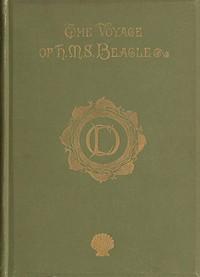Read this ebook for free! No credit card needed, absolutely nothing to pay.
Words: 13562 in 6 pages
This is an ebook sharing website. You can read the uploaded ebooks for free here. No credit cards needed, nothing to pay. If you want to own a digital copy of the ebook, or want to read offline with your favorite ebook-reader, then you can choose to buy and download the ebook.


: The House of Heine Brothers in Munich by Trollope Anthony - Short stories; British Germany Fiction; Courtship Fiction
THE HOUSE OF HEINE BROTHERS, IN MUNICH.
THE house of Heine Brothers, in Munich, was of good repute at the time of which I am about to tell,--a time not long ago; and is so still, I trust. It was of good repute in its own way, seeing that no man doubted the word or solvency of Heine Brothers; but they did not possess, as bankers, what would in England be considered a large or profitable business. The operations of English bankers are bewildering in their magnitude. Legions of clerks are employed. The senior book-keepers, though only salaried servants, are themselves great men; while the real partners are inscrutable, mysterious, opulent beyond measure, and altogether unknown to their customers. Take any firm at random,--Brown, Jones, and Cox, let us say,--the probability is that Jones has been dead these fifty years, that Brown is a Cabinet Minister, and that Cox is master of a pack of hounds in Leicestershire. But it was by no means so with the house of Heine Brothers, of Munich. There they were, the two elderly men, daily to be seen at their dingy office in the Schrannen Platz; and if any business was to be transacted requiring the interchange of more than a word or two, it was the younger brother with whom the customer was, as a matter of course, brought into contact. There were three clerks in the establishment; an old man, namely, who sat with the elder brother and had no personal dealings with the public; a young Englishman, of whom we shall anon hear more; and a boy who ran messages, put the wood on to the stoves, and swept out the bank. Truly he house of Heine Brothers was of no great importance; but nevertheless it was of good repute.
The office, I have said, was in the Schrannen Platz, or old Market-place. Munich, as every one knows, is chiefly to be noted as a new town,--so new that many of the streets and most of the palaces look as though they had been sent home last night from the builders, and had only just been taken out of their bandboxes It is angular, methodical, unfinished, and palatial. But there is an old town; and, though the old town be not of surpassing interest, it is as dingy, crooked, intricate, and dark as other old towns in Germany. Here, in the old Market-place, up one long broad staircase, were situated the two rooms in which was held the bank of Heine Brothers.
Ernest Heine was at this time over sixty; his wife was past forty; and his eldest daughter, as I have said, was twenty-one years of age. His second child, also a girl, was six years younger; and their third child, a boy, had not been born till another similar interval had elapsed. He was named Hatto after his uncle, and the two girls had been christened Isa and Agnes. Such, in number and mode of life, was the family of the Heines.
We English folk are apt to imagine that we are nearer akin to Germans than to our other continental neighbours. This may be so in blood, but, nevertheless, the difference in manners is so striking, that it could hardly be enhanced. An Englishman moving himself off to a city in the middle of Central America will find the customs to which he must adapt himself less strange to him there, than he would in many a German town. But in no degree of life is the difference more remarkable than among unmarried but marriageable young women. It is not my purpose at the present moment to attribute a superiority in this matter to either nationality. Each has its own charm, its own excellence, its own Heaven-given grace, whereby men are led up to purer thoughts and sweet desires; and each may possibly have its own defect. I will not here describe the excellence or defect of either; but will, if it be in my power, say a word as to this difference. The German girl of one-and-twenty,--our Isa's age,--is more sedate, more womanly, more meditative than her English sister. The world's work is more in her thoughts, and the world's amusements less so. She probably knows less of those things which women learn than the English girl, but that which she does know is nearer to her hand for use. She is not so much accustomed to society, but nevertheless she is more mistress of her own manner. She is not taught to think so much of those things which flurry and disturb the mind, and therefore she is seldom flurried and disturbed. To both of them, love,--the idea of love,--must be the thought of all the most absorbing; for is it not fated for them that the joys and sorrows of their future life must depend upon it? But the idea of the German girl is the more realistic, and the less romantic. Poetry and fiction she may have read, though of the latter sparingly; but they will not have imbued her with that hope for some transcendental paradise of affection which so often fills and exalts the hearts of our daughters here at home. She is moderate in her aspirations, requiring less excitement than an English girl; and never forgetting the solid necessities of life,--as they are so often forgotten here in England. In associating with young men, an English girl will always remember that in each one she so meets she may find an admirer whom she may possibly love, or an admirer whom she may probably be called on to repel. She is ever conscious of the fact of this position; and a romance is thus engendered which, if it may at times be dangerous, is at any rate always charming. But the German girl, in her simplicity, has no such consciousness. As you and I, my reader, might probably become dear friends were we to meet and know each other, so may the German girl learn to love the fair-haired youth with whom chance has for a time associated her; but to her mind there occurs no suggestive reason why it should be so,--no probability that the youth may regard her in such light, because that chance has come to pass. She can therefore give him her hand without trepidation, and talk with him for half an hour, when called on to do so, as calmly as she might do with his sister.
Such a one was Isa Heine at the time of which I am writing. We English, in our passion for daily excitement, might call her phlegmatic, but we should call her so unjustly. Life to her was a serious matter, of which the daily duties and daily wants were sufficient to occupy her thoughts. She was her mother's companion, the instructress of both her brother and her sister, and the charm of her father's vacant hours. With such calls upon her time, and so many realities around her, her imagination did not teach her to look for joys beyond those of her present life and home. When love and marriage should come to her, as come they probably might, she would endeavour to attune herself to a new happiness and a new sphere of duties. In the meantime she was contented to keep her mother's accounts, and look after her brother and sister up two pair of stairs in the Ludwigs Strasse. But change would certainly come, we may prophesy; for Isa Heine was a beautiful girl, tall and graceful, comely to the eye, and fit in every way to be loved and cherished as the partner of a man's home.
I have said that an English clerk made a part of that small establishment in the dingy banking-office in the Schrannen Platz, and I must say a word or two of Herbert Onslow. In his early career he had not been fortunate. His father, with means sufficiently moderate, and with a family more than sufficiently large, had sent him to a public school at which he had been very idle, and then to one of the universities, at which he had run into debt, and had therefore left without a degree. When this occurred, a family council of war had been held among the Onslows, and it was decided that Herbert should be sent off to the banking-house of Heines, at Munich, there being a cousinship between the families, and some existing connections of business.
It was, therefore, so settled; and Herbert, willing enough to see the world,--as he considered he should do by going to Munich,--started for his German home, with injunctions, very tender from his mother, and very solemn from his aggrieved father. But there was nothing bad at the heart about young Onslow, and if the solemn father had well considered it, he might perhaps have felt that those debts at Cambridge reflected more fault on him than on his son. When Herbert arrived at Munich, his cousins, the Heines,--far-away cousins though they were,--behaved kindly to him. They established him at first in lodgings, where he was boarded with many others, having heard somewhat of his early youth. But when Madame Heine, at the end of twelve months, perceived that he was punctual at the bank, and that his allowances, which, though moderate in England, were handsome in Munich, carried him on without debt, she opened her motherly arms and suggested to his mother and to himself, that he should live with them. In this way he also was domiciled up two pairs of stairs in the palatial residence in the Ludwigs Strasse.
But all this happened long ago. Isa Heine had been only seventeen when her cousin had first come to Munich, and had made acquaintance with him rather as a child than as a woman. And when, as she ripened into womanhood, this young man came more closely among them, it did not strike her that the change would affect her more powerfully than it would the others. Her uncle and father, she knew, had approved of Herbert at the bank; and Herbert had shown that he could be steady; therefore he was to be taken into their family, paying his annual subsidy, instead of being left with strangers at the boarding-house. All this was very simple to her. She assisted in mending his linen, as she did her father's; she visited his room daily, as she visited all the others; she took notice of his likings and dislikings as touching their table arrangement,--but by no means such notice as she did of her father's; and without any flutter, inwardly in her imagination or outwardly as regarded the world, she made him one of the family. So things went on for a year,--nay, so things went on for two years with her, after Herbert Onslow had come to the Ludwigs Strasse.
But the matter had been regarded in a very different light by Herbert himself. When the proposition had been made to him, his first idea had been that so close a connection with, a girl so very pretty would be delightful. He had blushed as he had given in his adhesion; but Madame Heine, when she saw the blush, had attributed it to anything but the true cause. When Isa had asked him as to his wants and wishes, he had blushed again, but she had been as ignorant as her mother. The father had merely stipulated that, as the young Englishman paid for his board, he should have the full value of his money, so that Isa and Agnes gave up their pretty front room, going into one that was inferior, and Hatto was put to sleep in the little closet that had been papa's own peculiar property. But nobody complained of this, for it was understood that the money was of service.
For the first year Herbert found that nothing especial happened. He always fancied that he was in love with Isa, and wrote some poetry about her. But the poetry was in English, and Isa could not read it, even had he dared to show it to her. During the second year he went home to England for three months, and by confessing a passion to one of his sisters, really brought himself to feel one. He returned to Munich resolved to tell Isa that the possibility of his remaining there depended upon her acceptance of his heart; but for months he did not find himself able to put his resolution in force. She was so sedate, so womanly, so attentive as regarded cousinly friendship, and so cold as regarded everything else, that he did not know how to speak to her. With an English girl whom he had met three times at a ball, he might have been much more able to make progress. He was alone with Isa frequently, for neither father, mother, nor Isa herself objected to such communion; but yet things so went between them that he could not take her by the hand and tell her that he loved her. And thus the third year of his life in Munich, and the second of his residence in the Ludwigs Strasse, went by him. So the years went by, and Isa was now past twenty. To Herbert, in his reveries, it seemed as though life, and the joys of life, were slipping away from him. But no such feeling disturbed any of the Heines. Life of course, was slipping away; but then is it not the destiny of man that life should slip away? Their wants were all satisfied, and for them, that, together with their close family affection, was happiness enough.
At last, however, Herbert so spoke, or so looked, that both Isa and her mother that his heart was touched. He still declared to himself that he had made no sign, and that he was an oaf, an ass, a coward, in that he had not done so. But he had made some sign, and the sign had been read. There was no secret,--no necessity for a secret on the subject between the mother and daughter, but yet it was not spoken of all at once. There was some little increase of caution between them as Herbert's name was mentioned, so that gradually each knew what the other thought; but for weeks, that was all. Then at last the mother spoke out.
Free books android app tbrJar TBR JAR Read Free books online gutenberg
More posts by @FreeBooks

: Journal of Researches into the Natural History and Geology of the Countries Visited During the Voyage Round the World of H.M.S. Beagle Under the Command of Captain Fitz Roy R.N. by Darwin Charles - Natural history; Beagle Expedition (1831-1836); Geology; V


: Dot and the Kangaroo by Pedley Ethel C - Kangaroos Juvenile fiction; Animals Australia Juvenile fiction Australia


: Famous Men of the Middle Ages by Haaren John H John Henry Poland Addison B - Europe Biography; Europe History 476-1492 Biographies




